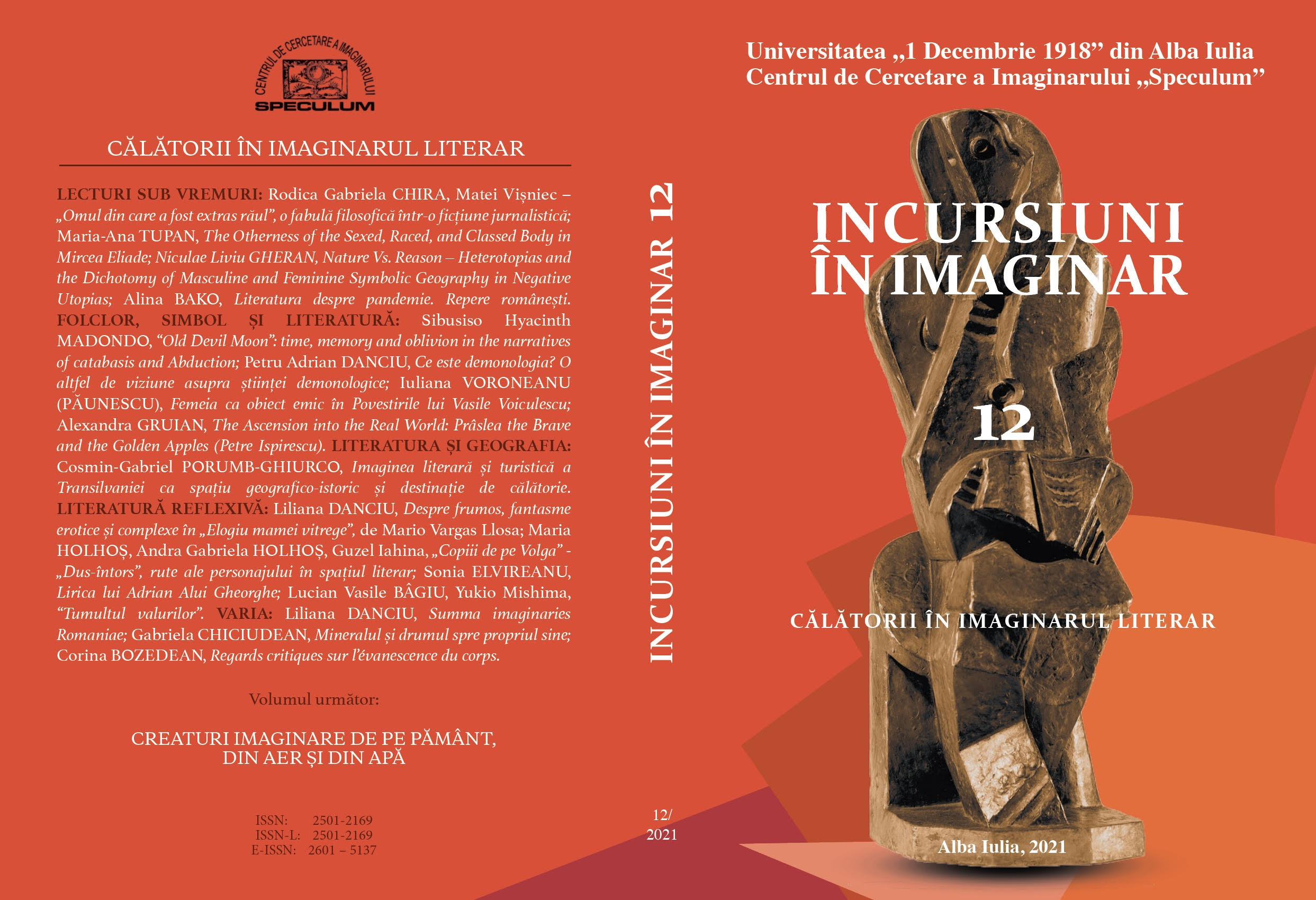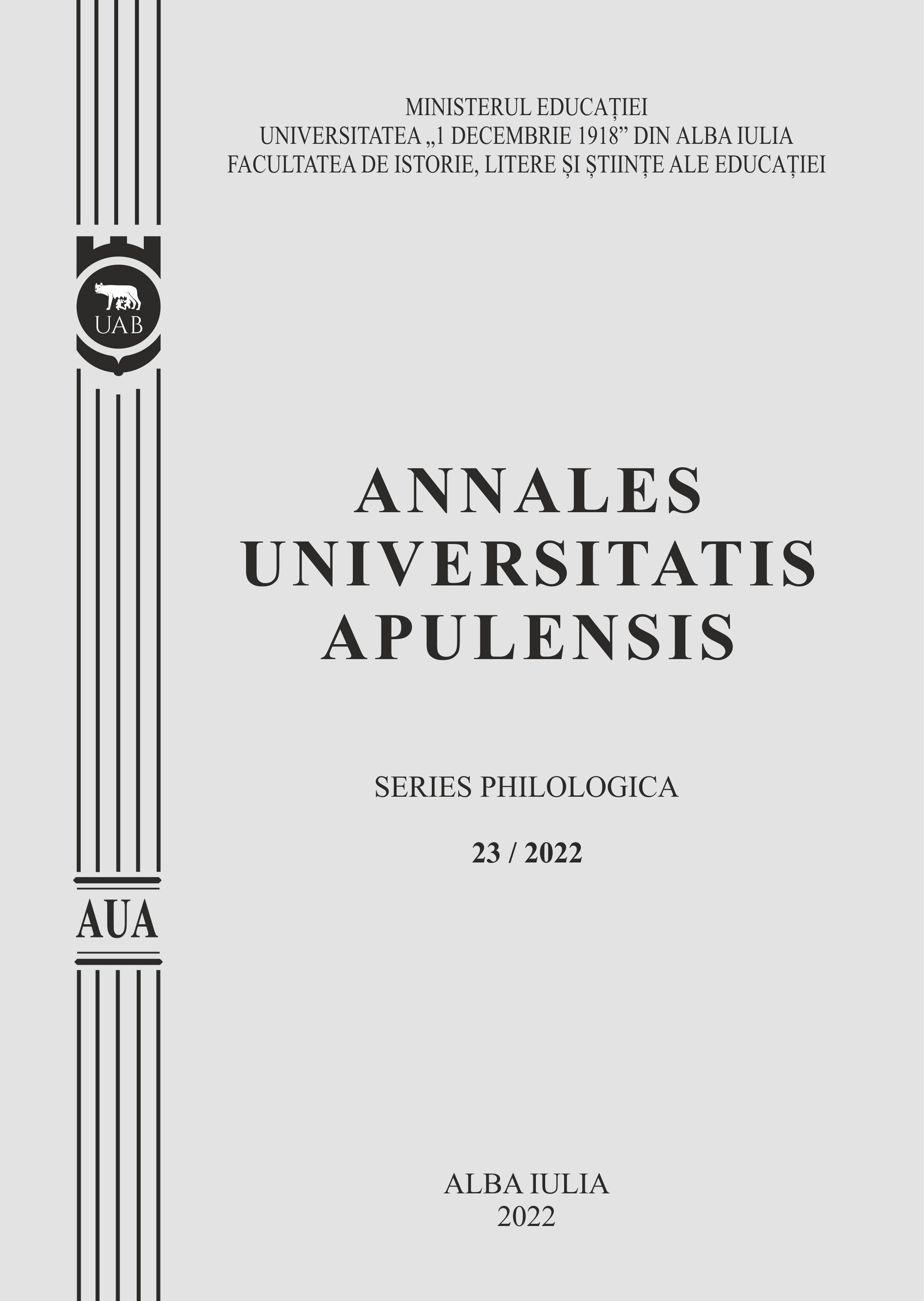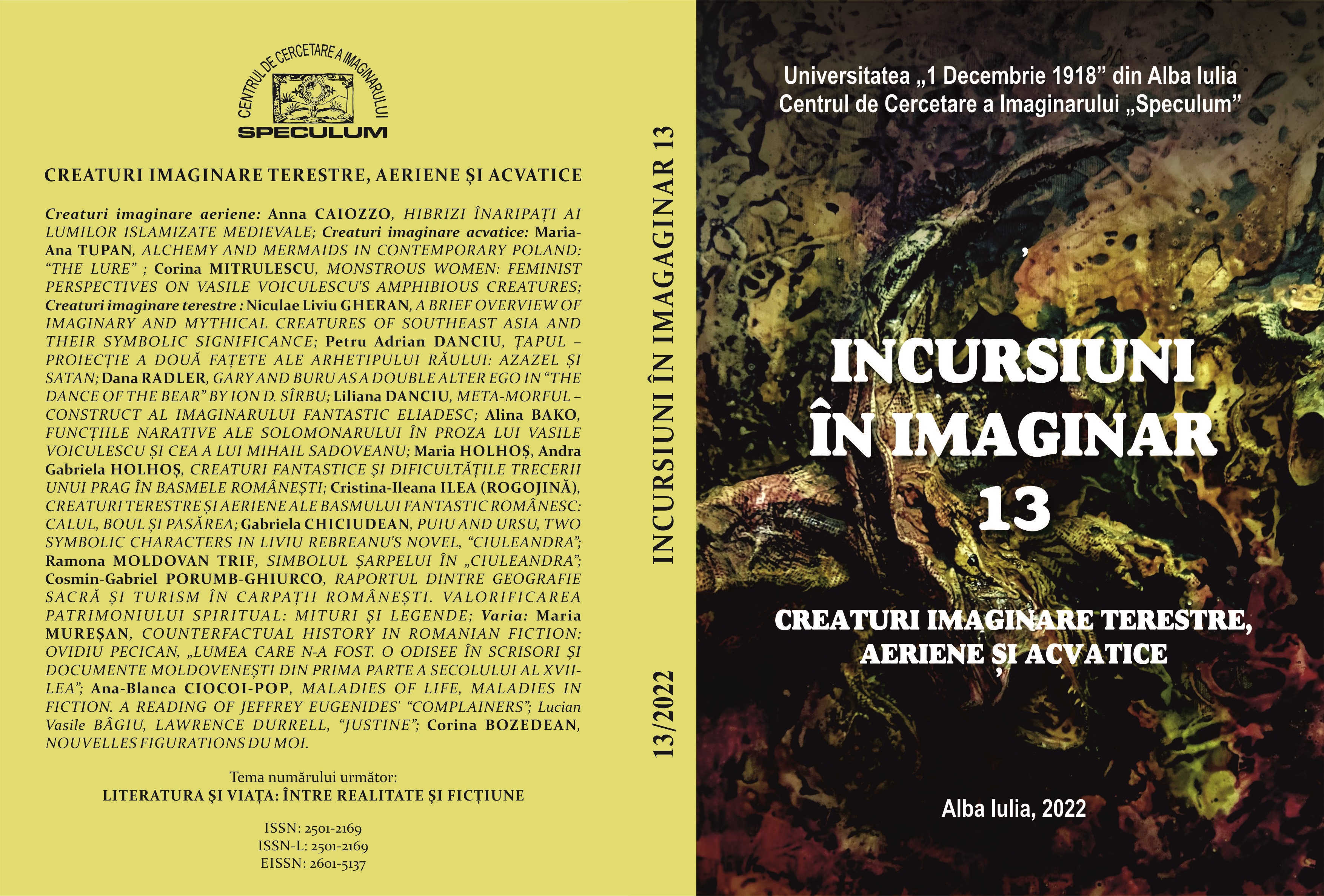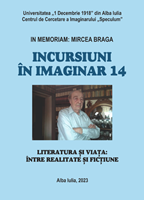Ascensiuni celeste în basmele româneşti
Author(s): Andra Gabriela Holhoş,Maria Holhoș / Language(s): Romanian
/ Issue: 3/2013
Keywords: mith,faitytale,shadow,mystery; cosmic
In Romanian fairytales, as well as in the universal ones, from those that belong to the Aery ascension, we can distinguish the possibility of the characters getaway from the earth, into the imaginary world by a fantasy . The places to which the characters tend to go seem completely abhorrent: either towards the wonderful goddess zone, pictorial scenery and eternal life, where they hope to accomplish a promise or to receive an award, or towards a darkness zone, full of shades and earth pitch, reminding of the frightening world of the purgatory, in which the character gets guided by the liberator thought for somebody he/she knows. Other times, he is accompanied by a mentor with the aim of discovering the unbelievable dimensions of the evil. That is when the character gets through the initiation journey, getting to know the imaginary world of punishments endured by the ones who do bad things.
In fairytales,there frequenly appear situations in which the character tries to elucidate a conflict by detaching himself of the ordinary world, going towards unknown places , wanting to change a destiny, due to an extraordinary personal ability. In this kind of situations, the fairytales offer an interesting imaginary possibility of escaping from terrestrial time and space by going to the enigmatic sidereal world.
A condition of the ascension is giving up to the material fortune. Those characters who accomplish that kind of role (of ascension towards another world) alienate themselves from the wish of possessing material values. The character gets to know what poverty means, seen as a symbol of returning to his inner place, a step towards the inner freedom. The condition of entering the never ending celestial world which is the purification, is frequently seen in the fairytales. This is made by interspersion of the rational knowledge with the spiritual one. The knowledge enigmas may be considered an interior existence problems, attempts of the fretful soul of to be or not to be. The human knowledge possibilities tend to be replaced by the presence of the supernatural forces, images that are a real source of the character’s inner force..
The fairytales in which the main character gets the chance to escape from the earth, can be compared to a vertical parable, delimitated by the two formulas: the first one sends us to the beginning paradisiacal world ( can be that illo tempore), and the last one sends us to the apotheosis ( a real wedding) . The stories prolongations affronts the passing of the time, heading towards eternity , by loosing itself somewhere in the future.
The ideal acheivment of surpassing his earthly condition is possible only with the help of some miraculous objects . The first category is formed by some trees or plants which grown towards the sky ( walnut, pear, chestnut, oak, beans, peas, cabbage, barley, pumpkin).
More...
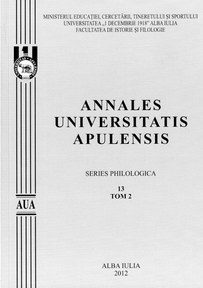

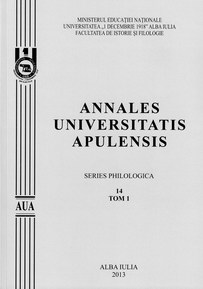
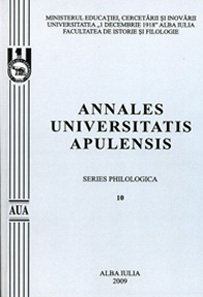
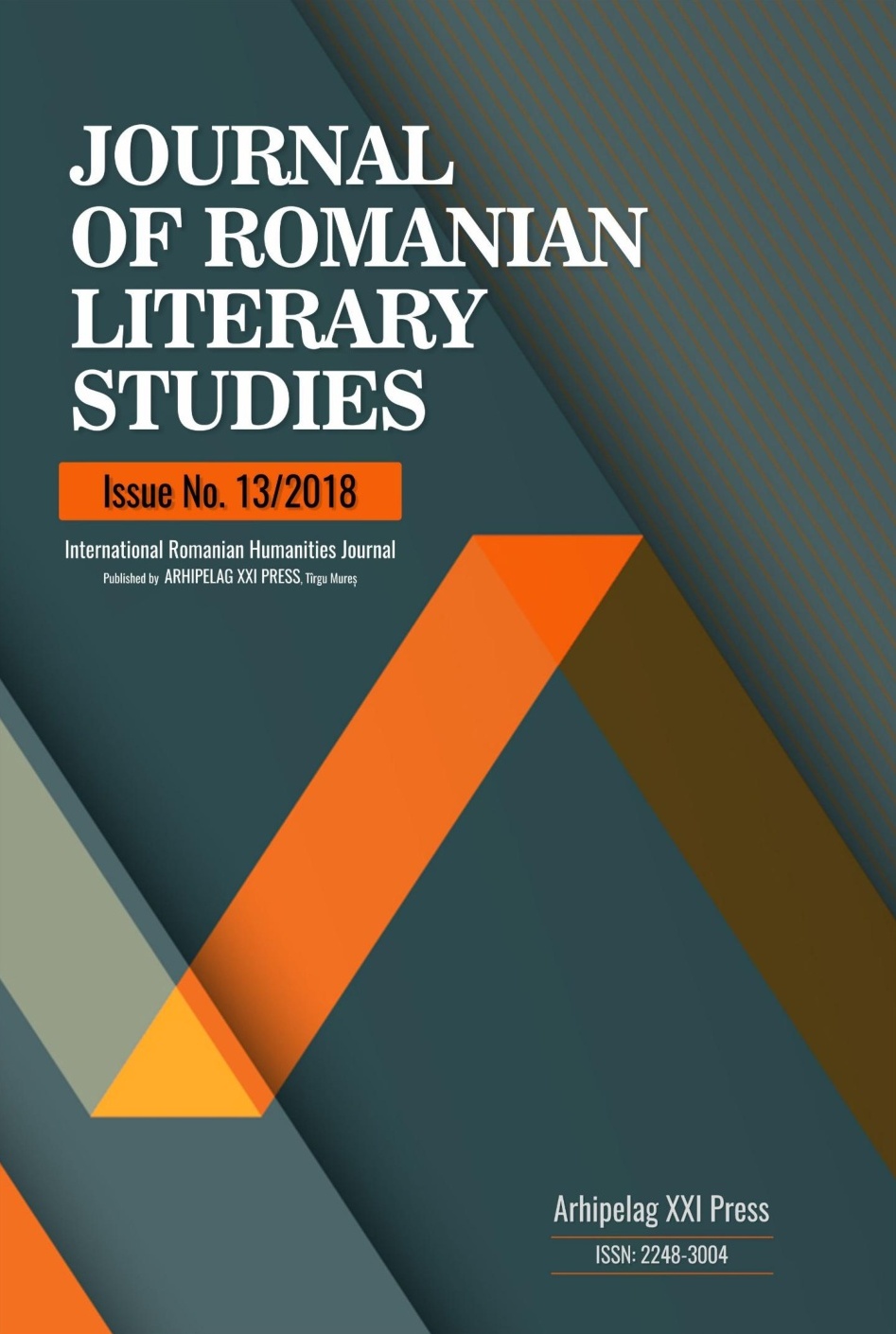
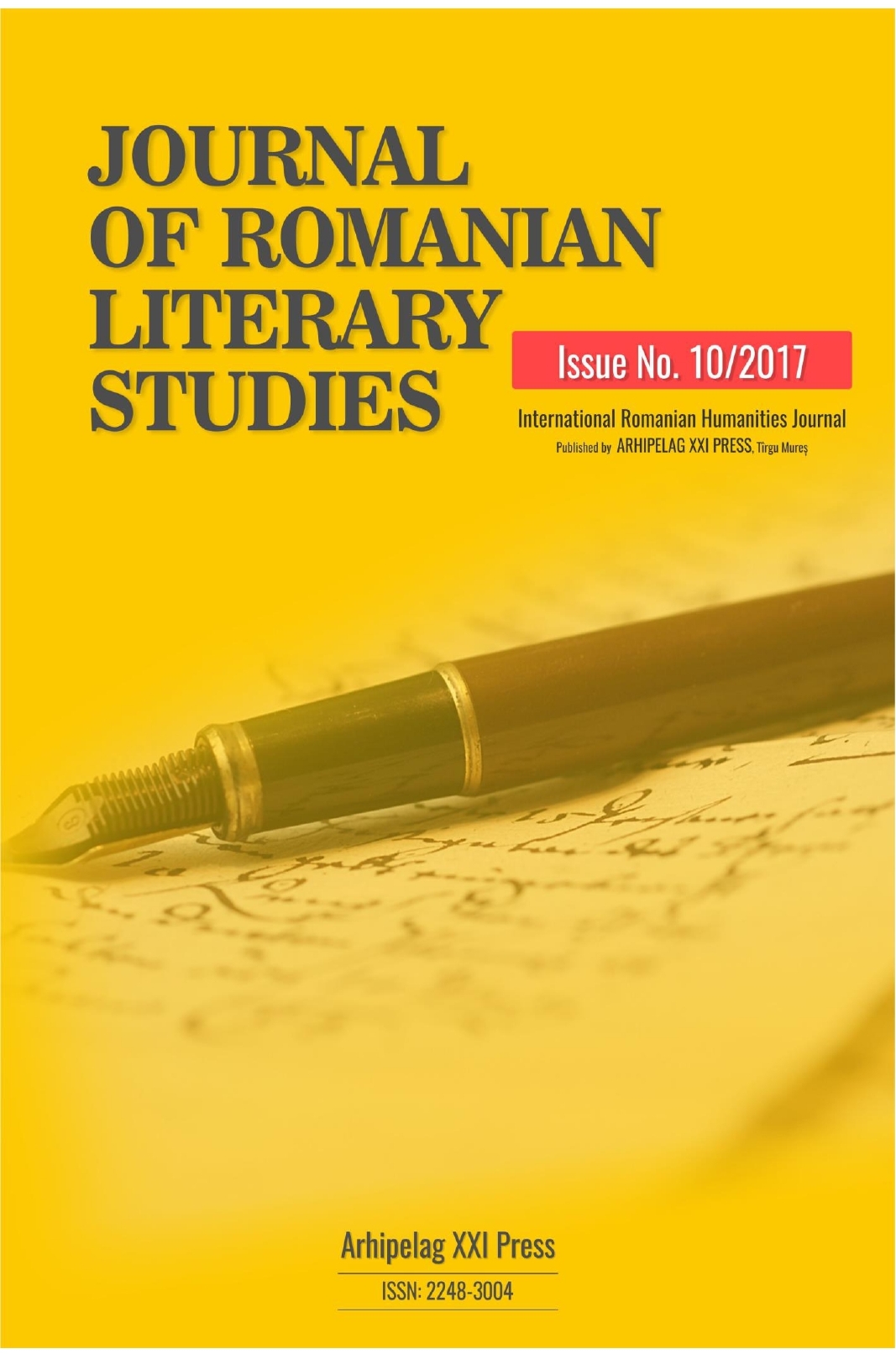
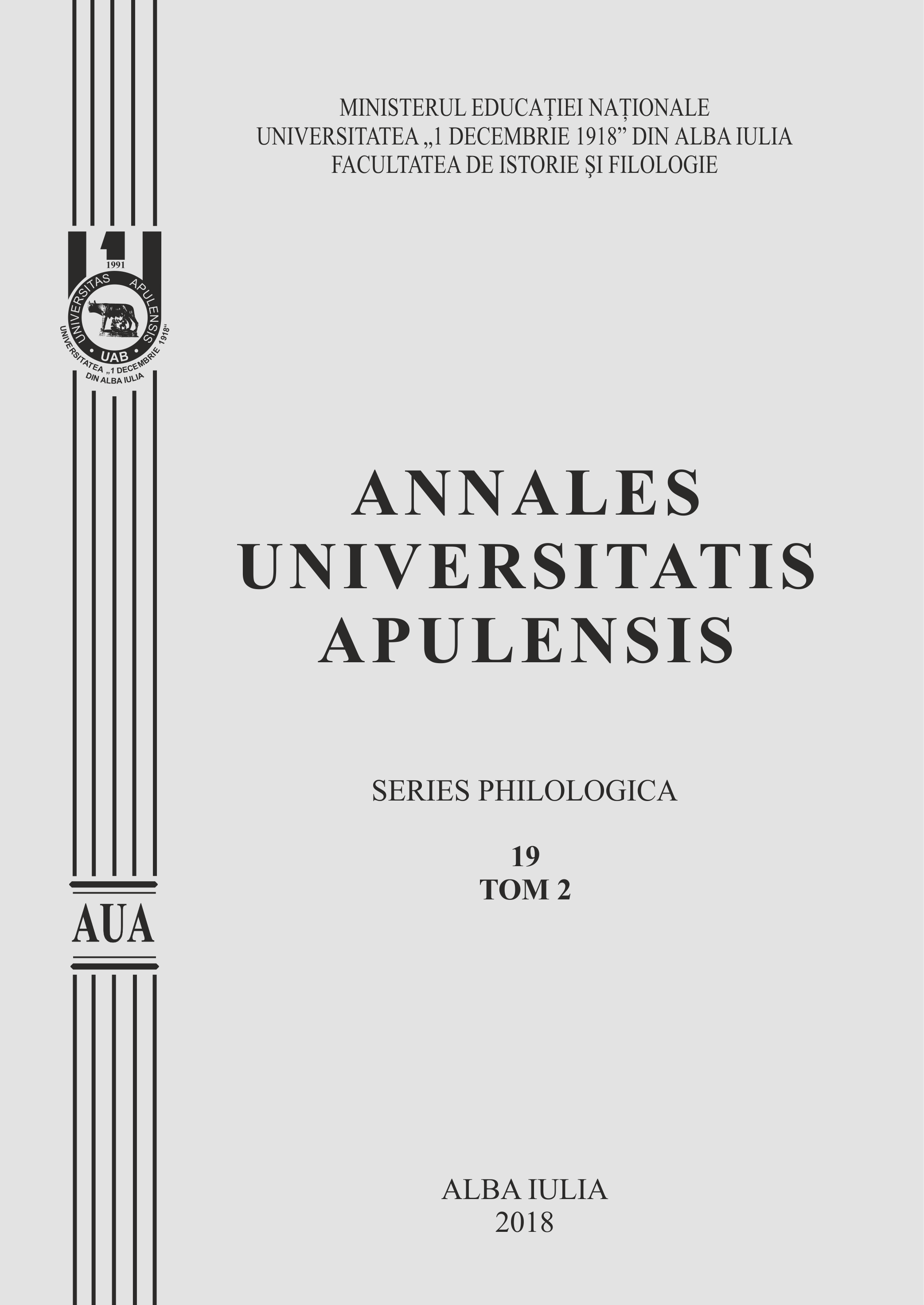
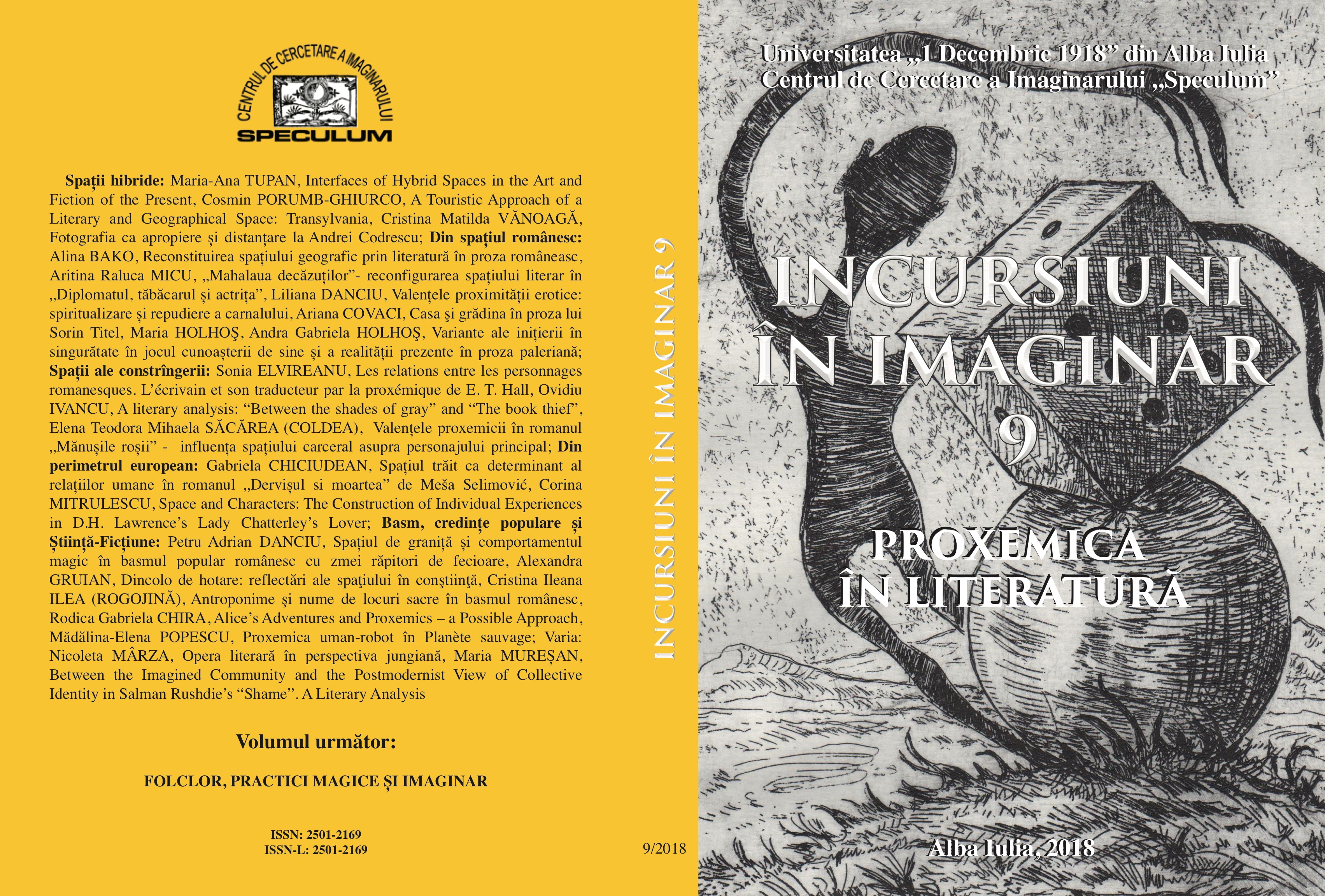
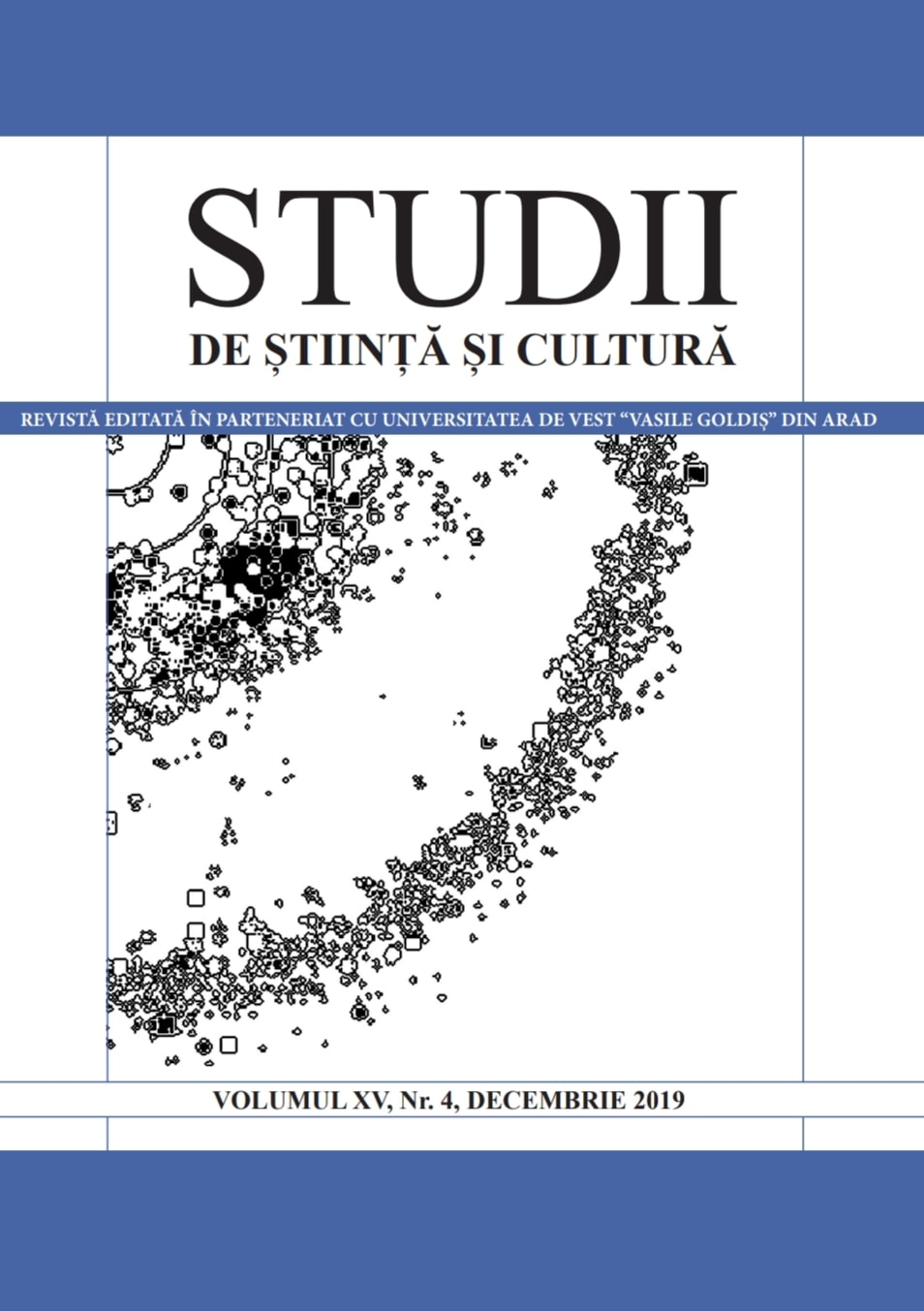
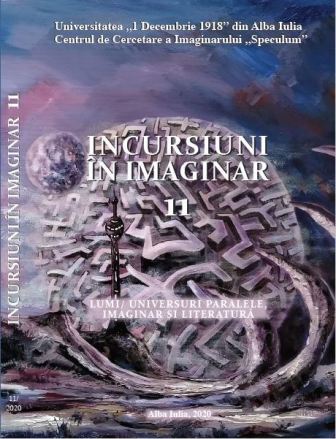
![ZULEIHA DESCHIDE OCHII [ZULEIKHA OPENS HER EYES]) – AN EXOTERIC AND ESOTERIC NOVEL](/api/image/getissuecoverimage?id=picture_2020_57819.jpg)
![From Mythology to the Fiction Games in the Novel Prevestirea [The Omen] by Ioana Parvulescu](/api/image/getissuecoverimage?id=picture_2021_64358.jpg)
